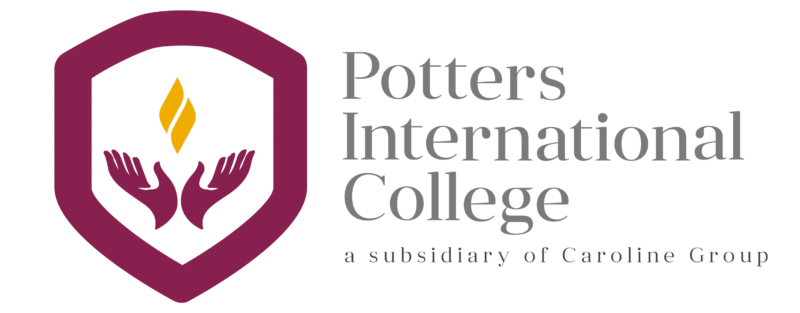Success in the field of IT requires an ongoing commitment to update one’s skills in the rapidly changing industry. In this program, students will acquire the expertise and practical skills to support the use of computers and networks in many facets of our daily lives. Graduates are able to work individually or as a team to implement and maintain IT solutions to meet the day-to-day requirements of individuals and organizations. Students will receive hands-on training in computer hardware, software installation, scripting procedures, diagnostics, maintenance, user support, and more.
This course will give you the foundation skills to produce documentation e.g. technical instructions, definitions, summaries, technical system descriptions, and manuals common in the workplace. Writing to inform readers to understand requires document design skills that differ from traditional writing skills. You are responsible for developing your vocabulary, basic grammar, spelling, graphic awareness and reading strategies to power your career.
In this course, students will be introduced to network terminology, network media, Network Interface Card (NIC) and various topologies and architectures. Simple and Complex Network operations, Ethernet, Protocols and Network Operating Systems will be introduced. Local Area Network (LAN) and Wide Area Network (WAN) will be discussed and the enterprise and distributed network technology (Internet) will be introduced.
pages together. You will also learn how to control the layout and style of web pages using Cascading Style Sheets (CSS), and to make your web pages interactive using JavaScript.
In this course you will complete a sequence of assignments designed to familiarize you with HTML, CSS, and JavaScript.
This course provides an introduction to programming using the C++ language. The course introduces the syntax and usage of C++. A disciplined approach to program development and to producing readable programs is emphasized. Topics covered include: variables, data types, assignment/arithmetic, input/output, repetition, selection, arrays and file output
This course begins with an overview of Microsoft Excel, and then focuses on Microsoft Access. It introduces the student to database design and one to many relationships. The student will build multiple tables, queries, multiple forms and custom reports. The student will understand and implement calculations and aggregate functions
This course begins with a review of operations within number sets to prepare you to solve equations and to convert among number systems.
This course serves as an introduction to the interaction between hardware and software. The major hardware components in a computer system are identified. The relationship among system software, application software and data is included in an explanation of how a computer system works. The skills necessary to properly use and care for a personal computer from outside the case will be covered.
This core course is in the second semester of the Computer Networking and Technical support program. This course is designed to teach the student the fundamental concepts of the Linux Operating System. The Introduction to Linux course will introduce the student to the essentials of Linux in terms basic Linux operation, command line, configuration and maintenance. The course will concentrate on operation, running, and maintenance of Linux.
COMP1201 is a database course emphasizing concepts and techniques. The student will work with the advanced features of Microsoft Access. The student will study table design and relationships and create advanced queries and forms. Students will then turn their focus to MySQL creating databases and tables. The student will write code to retrieve, update and add data to a MySQL database.
This course will teach the student new terminology and the fundamental concepts of data and voice communications from business point of view. Data communications concepts are illustrated by study of Media, Equipment and Data Transmission, Modulation, Synchronisation and Error management. Student will learn basic network concepts, network ownership and distributing systems as well as MAN and WAN from business point of view. Electronic commerce, B2B initiative and the Electronic Data Interchange will be introduced. Emphases will be placed on Communication Services for WAN like switched and dedicated circuits (T- carrier, ISDN, Metro Ethernet, DSL and SONET), fast packet services (X.25, Frame Relay and ATM), and Multiplexing. Network Security issues will also be discussed. e-Business Applications and the Challenge of Living in a Connected World will complete this basic approach to data communications.
This course is an expansion on basic user knowledge of a Windows Operating System environment for students enrolled in this Computer Networking program. The course will explore architecture of Windows 7. Students will learn to install and configuration the OS. The booting process as well as various System Utilities will be covered. The course will concentrate on System Management, Administration, File Systems, shares and file securities. Students will also be introduced to different Network Protocols and a client site of the Remote Access Services (RAS). Various Windows 7 components, printing and performance tuning and monitoring will be learned. The practical experience of all covered subjects will be gained in labs.
Introduction to College Communications provides instruction and practice in college and workplace communication skills, with an emphasis on the development of strategies to organize and express ideas in a clear and professional manner. Emails, memos, letters, short reports, and essays are used to develop effective writing skills suitable to a variety of audiences. Course work also provides opportunities for the development of students’ grammar, research, analytical, reading and listening skills. American Psychological Association (APA) format and documentation is introduced.
The aim of this course is to introduce the use of Perl as a scripting language to build simple, yet effective tools to automate standard administration tasks. The student will be introduced to the types of systems that they may encounter, the tasks they will be required to perform, and the skills they will need to build upon in order to be effective problem solving. The students are required to use a Windows and Linux lab environment where the scripts developed will be tailored for that particular scenario. The lectures will introduce students to the techniques they will be required to use and develop in order to be able to solve complex problems. These lectures will concentrate on problem definition, requirements analysis, and software construction.
This course is intended to give additional breadth and depth about the user support field and to tie together the knowledge and skills introduced in other courses. Students will benefit from activities that provide practical experience and skills they will use on the job. Students will learn skills in demand by the user support industry to assist employees with their computer use. The course will acquaint students with information resources and technical tools, knowledge that is essential to function effectively in team-oriented work environments of the 2000s, to run effective Help Desk Operation, Troubleshoot Computer Problems and provide professional Computer Facility Management.
This core course is designed to teach the student more advanced concepts of the Linux Operating System. The Linux Operating Administration and O/S Virtualization course will continue the discussions of Linux in terms of installation, configuration, and maintenance. The course will concentrate on administration, running, and maintenance of Linux Server environment including configuration of DHCP, DNS, and Web Server daemons. The course will have the Linux Server running as a Guest Virtual Operating System.
Operating system. In this course, students will use knowledge of the OSI Model, TCP/IP Model and Physical Transmission Options to design simple and more complex networks. Various transmission equipment, hubs. bridges, routers, switches and gateways will be studied and used in designing LAN/WAN network connections. How TCP/IP protocol works will be studied. The IP addressing and subnetting will be learned and used to design sub-networks. Students will learn to use computer-drawing tools to produce their designs. Network requirements for the integration of voice, data and multimedia will be studied. Areas of Network Security and WAN concepts and configuration will be explored.
This course is designed to teach the student to work inside a microcomputer system with supervision. A hands-on approach will be used to provide the student with a basic skill level to work on a computer with the lid off. Recognition and solution of common hardware, software problems including the replacement or upgrading of components will be addressed
This course is designed to help students adapt to the rapidly changing workplace. It provides an historical overview of our working society and how it has evolved. Issues such as employment equity, harassment, regulation of health and safety, unionization, professional organizations and codes of ethics are discussed. Students also identify strategies to meet the needs of current employers and to make interview processes work to their advantage.
In this course, students apply practical skills from throughout the program to a simulated work environment related to the field of Computer Networking and Technical Support (CNTS). All CNTS students work on projects that simulate common tasks encountered by employees of a Help Desk, Hardware Support, Network Installation, Network Administration, etc. Students remain under the guidance of faculty and are required to meet at regularly scheduled times for review. This course is offered in the fourth semester of the CNTS program. This is a core course and allows students to apply a variety of skills from throughout the program to situations encountered in a simulated work environment.
This core course is designed to teach the student the concepts of Web Server Administration both from a Windows Server and Linux Server prospective. The Advanced Linux and Web Server Administration course will introduce the student to the essentials of Windows and Linux in terms of installation, configuration, and maintenance of a Web Server including configuration of DHCP, DNS, and Web Server daemons, Linux Apache and Windows IIS will be used as Web Server software.
In this course, students will be introduced to Network Administration – Windows 2008 Server in the Enterprise builds on knowledge gained in the Introduction to Networking, the Windows and the Network Design courses.
This course addresses the necessary guidelines and procedures for identifying and solving, in a support role, most microcomputer hardware and software problems. The ability to work on your own to acquire and develop these skills will be emphasized.

